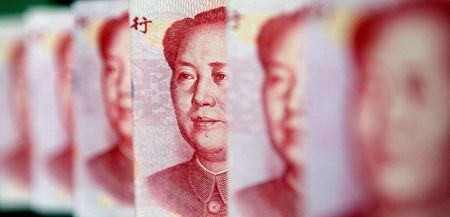 1
1 1
1

SHANGHAI (Reuters) -China said on Friday it will maintain yuan flexibility and foreign exchange market stability, vowing to actively prevent and defuse risks from external shocks.
The trend of foreigners investing in China, and allocating yuan assets will not change, China’s foreign exchange regulator said. Meanwhile, China expects a reasonable current account surplus this year, despite an expected slowdown in exports.
The comments come amid signs of heavy foreign outflows from Chinese markets since Russia launched war on Ukraine, as investors reckoned Beijing’s friendship with Moscow could become a handicap the longer the conflict lasts.
The growing policy divergence between a hawkish U.S. Federal Reserve, and a dovish People’s Bank of China could also lead to money outflows.
The State Administration of Foreign Exchange (SAFE) said on Friday it will strengthen macro-prudential management of cross-border capital flows, and ward off risks of external shocks.
China will continue to maintain yuan flexibility, step up monitoring cross-border capital flows, enrich the policy toolbox, and appropriately guide expectations, it said.
“China’s financial market is increasingly open, and Chinese bonds and stocks have sound investment value,” SAFE said.
“There’s still big room for foreign investors to increase allocation (to China assets), which is good for long-term, steady capital inflows.”
In terms of current account, China’s export growth will likely slow from a high base, as the pandemic’s impact on global trade activities becomes muted.
But China’s current account surplus will remain at a reasonable level, SAFE said.
(Reporting by Shanghai and Beijing Newsroom; editing by Philippa Fletcher and Toby Chopra)